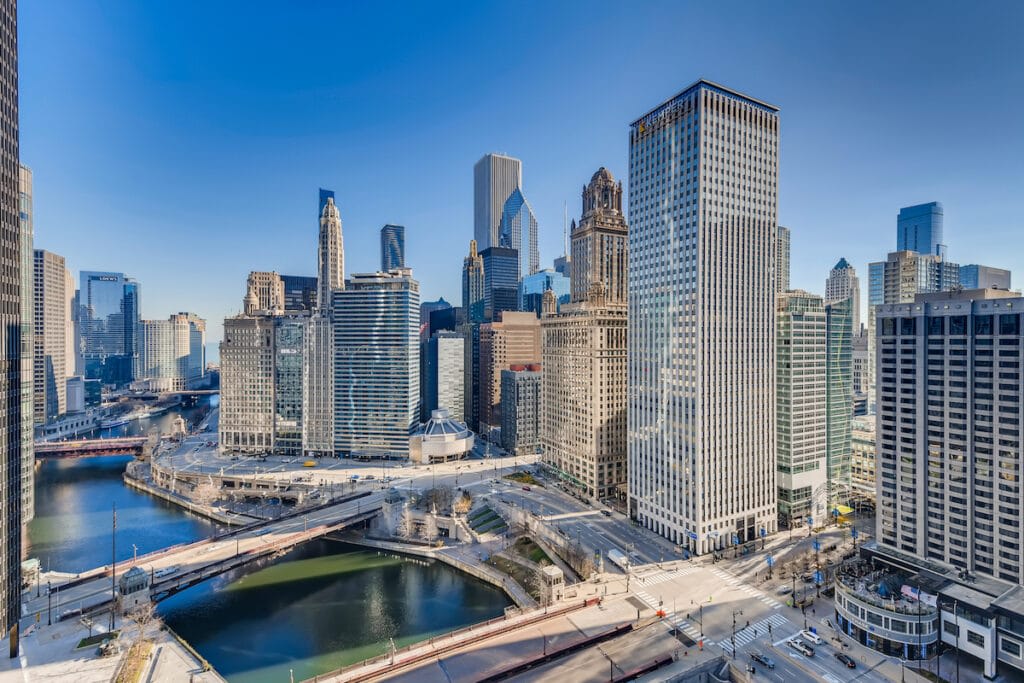Adaptive Reuse and Historic Preservation in Chicago's Real Estate Market
Historic Preservation in Chicago's Real Estate Market

Chicago's rich architectural heritage and cultural legacy have endowed the city with a wealth of historic buildings and structures that serve as enduring reminders of its storied past. In recent years, adaptive reuse and historic preservation have emerged as powerful tools for revitalizing these historic properties, breathing new life into iconic landmarks and repurposing them for modern-day uses. In this article, we explore the significance of adaptive reuse and historic preservation in Chicago's real estate market, examining the trends, challenges, and opportunities that define this dynamic sector.
Preserving Heritage, Embracing Innovation:
Hirsh Mohindra: Chicago's real estate landscape is characterized by a diverse array of historic properties, ranging from grand Beaux-Arts landmarks to humble industrial warehouses. Adaptive reuse and historic preservation offer a means of preserving these architectural treasures while adapting them to meet the needs of contemporary society. From adaptive reuse projects that transform former factories into vibrant mixed-use developments to historic preservation efforts that restore iconic skyscrapers to their former glory, Chicago's real estate market is a testament to the enduring value of preserving the past while embracing the future.
Fostering Vibrant Communities:
Adaptive reuse and historic preservation play a crucial role in fostering vibrant, livable communities in Chicago. By breathing new life into underutilized or abandoned buildings, these projects contribute to neighborhood revitalization efforts, spur economic development, and create unique destinations that attract residents, businesses, and visitors alike. Adaptive reuse developments often feature a mix of residential, commercial, and cultural uses, creating dynamic urban environments that reflect the diverse needs and interests of modern society.
Cultural and Economic Impact:
The cultural and economic impact of adaptive reuse and historic preservation in Chicago is profound. Historic properties provide a sense of continuity and identity, connecting residents to the city's rich history and cultural heritage. Additionally, adaptive reuse projects generate economic activity, create jobs, and generate tax revenue, contributing to the overall vitality and prosperity of the city. Furthermore, historic preservation can enhance property values, stimulate tourism, and attract investment, further reinforcing Chicago's reputation as a world-class destination for both residents and visitors.
Challenges and Opportunities:
Despite its many benefits, adaptive reuse and historic preservation in Chicago face a range of challenges, including regulatory hurdles, financing constraints, and technical complexities. Preservationists, developers, and policymakers must navigate a complex landscape of zoning regulations, historic designations, and funding sources to bring these projects to fruition. Additionally, balancing the need for preservation with the demands of modern development can sometimes lead to tensions between competing interests. However, these challenges also present opportunities for collaboration, innovation, and creative problem-solving, as stakeholders work together to overcome obstacles and unlock the full potential of Chicago's historic properties says, Hirsh Mohindra.
Case Studies:
Several notable examples of adaptive reuse and historic preservation projects in Chicago illustrate the transformative potential of these strategies:
1. The Chicago Athletic Association Hotel:
Originally built in 1893 as an exclusive private club, the Chicago Athletic Association building underwent a meticulous restoration and adaptive reuse project to transform it into a luxury boutique hotel. The project preserved the building's historic architecture while introducing modern amenities and guest accommodations, creating a vibrant destination in the heart of downtown Chicago.
2. The Plant:
Located in the historic Stockyards district, The Plant is a pioneering adaptive reuse project that transformed a former meatpacking facility into a sustainable vertical farm and food business incubator. The project repurposed the existing industrial infrastructure to create a hub for urban agriculture, food production, and entrepreneurship, fostering innovation and sustainability in the local food system.
3. The Robey Hotel:
Housed within the Art Deco-inspired Northwest Tower, The Robey Hotel is a striking example of adaptive reuse that preserves the historic character of the building while introducing contemporary design elements and amenities. The project transformed the tower into a boutique hotel with stylish guest rooms, rooftop bars, and restaurants, revitalizing a prominent landmark in Chicago's Wicker Park neighborhood.
Overall, adaptive reuse and historic preservation are integral components of Chicago's real estate market, shaping the city's built environment and preserving its architectural heritage for future generations. By breathing new life into historic properties and repurposing them for modern uses, these projects contribute to the vibrancy, diversity, and sustainability of Chicago's neighborhoods and communities. As the city continues to evolve and grow, adaptive reuse and historic preservation will remain essential strategies for creating a more livable, resilient, and culturally rich urban environment in Chicago and beyond says, Hirsh Mohindra.
About the Creator
Hirsh Mohindra
Hirsh Mohindra is a Chicago, USA based experienced business professional who is inspired by design, innovation and the power of relationships.






Comments
There are no comments for this story
Be the first to respond and start the conversation.